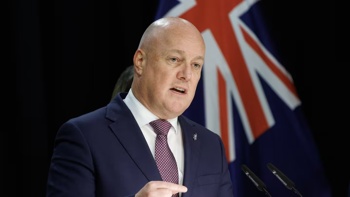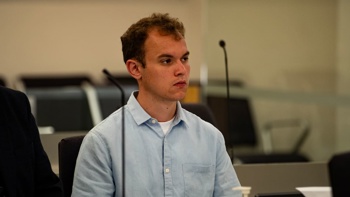The public will have a greater place in conversations about New Zealand’s national security, Prime Minister Jacinda Ardern pledged this morning.
“One clear message we’ve heard is people want us to talk more about national security,” she told the Countering Terrorism and Violent Extremism hui in Auckland.
The promise comes after public attitudes towards the risks faced by New Zealand were revealed in a landmark public survey by the nine government agencies charged with protecting the security of the country.
It showed natural disasters and health epidemics were of greatest concern to New Zealanders although people believed the government had systems in place to manage or mitigate events.
Throughout the survey, though, was concern about false and misleading information with the results showing less faith it was being managed.
The Prime Minister was speaking following the release of the survey and a draft long-term plan intended to enhance New Zealand’s national security.
It is the first time such an in depth study has been done into the public’s perceptions of risks and the country’s ability to counter or resist those risks. Like the hui this week, it stemmed from work carried out by the Royal Commission into the March 15 attacks that left 51 people dead and 40 wounded.
A review by the NZ Security Intelligence Service after the Royal Commission urged greater involvement by the public in national security. The NZSIS last week released a booklet to guide the public in identifying the “signs of violent extremism”.
Ardern said the survey clearly showed New Zealanders wanted more information about national security threats.
The survey showed just 20 per cent believed security agencies told people enough about what they were doing while 39 per cent said they were not told enough.
- PM addresses counter-terrorism meeting; experts forecast risks to nation
- Govt says it has to do what it must over national security
- Jacinda Ardern talks immigration and security with Aussie PM
The finding follows a report by the Inspector General of Intelligence and Security that found security classifications were often pitched at unnecessarily restrictive levels and the Operation Burnham inquiry which declassified thousands of pages of documents previously ruled as too sensitive.
Ardern said it was her view that information was kept from the public in the past because of a belief it would make people unnecessarily anxious.
She said she did not believe that was the case. “We have to make sure we are unafraid so we can talk about these risks.”
“New Zealanders need to know more about current and emerging threats to our national security.”
She said there remained a need for much of the work done by the security agencies to stay under wraps. Asked about the resourcing of the agencies - a point on which the survey showed Kiwis had concern - she said greater transparency would give the more public confidence funding was set at the right level.
/cloudfront-ap-southeast-2.images.arcpublishing.com/nzme/5UT4J65S7FD3THHCBACFGF7JCA.jpg) Prime Minister Jacinda Ardern speaks to media after addressing the Countering Terrorism and Violent Extremism hui. Photo / Jed Bradley
Prime Minister Jacinda Ardern speaks to media after addressing the Countering Terrorism and Violent Extremism hui. Photo / Jed Bradley
Ardern talked to the hui about concerns around disinformation and misinformation which were strongly reflected through the survey.
“There must always be space for radical ideas,” she said. “But when dehumanising and hateful ideas are part of ideologies … this may indicate a path towards violent extremism.”
She said “greater efforts were needed” to meet the challenge of false and misleading information around which people were “particularly concerned” as it eroded faith in institutions.
Key among those efforts was the Christchurch Call to Action initiative launched by Ardern two months after the March 15 attacks, spurred by the livestreaming of the attack. It aimed to draw commitments from governments, tech companies and others to eliminate terrorist and violent extremist content online.
The most recent advance was an agreement involving Twitter and Microsoft to create technology that would better understand the impact algorithms have on people’s online encounters.
The recent purchase of Twitter by Elon Musk, the world’s richest man, put the collective into “unknown territory”, she said. Musk pledged to open up the platform to those who had been excluded for harmfully misleading or hateful speech and - in one of his first tweets after purchase - posted false information.
Ardern said Twitter could be “a force for good” and hoped Musk would continue along the path Twitter had travelled towards greater transparency, particularly around how its algorithms worked.
In her speech to the hui, Ardern highlighted four global trends of concern to New Zealand. Those were increased global competition, changing and new technology, climate change and the ongoing impact of Covid-19.
Other risks facing New Zealand that featured strongly in the survey was the threat of cyber attacks and transnational organised crime.
Ardern said she believed it was important to “guard our liberties” while finding solutions to risks facing New Zealand.
“We’re not a country that believes in mass surveillance. Taking a securitised response is not always the best response.”
Take your Radio, Podcasts and Music with you









